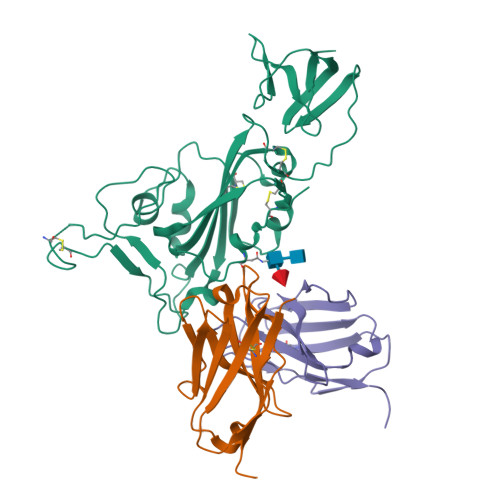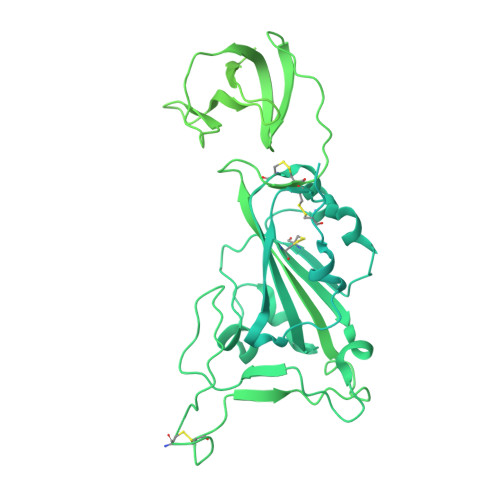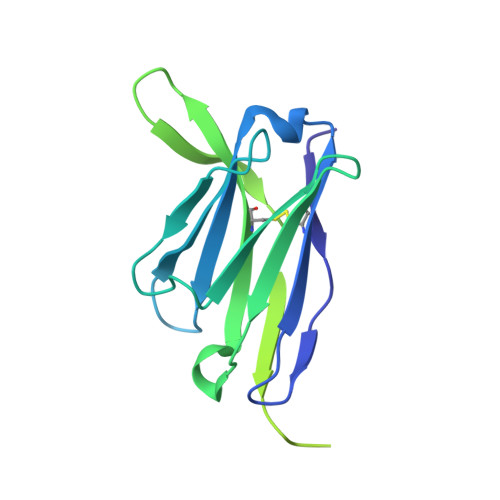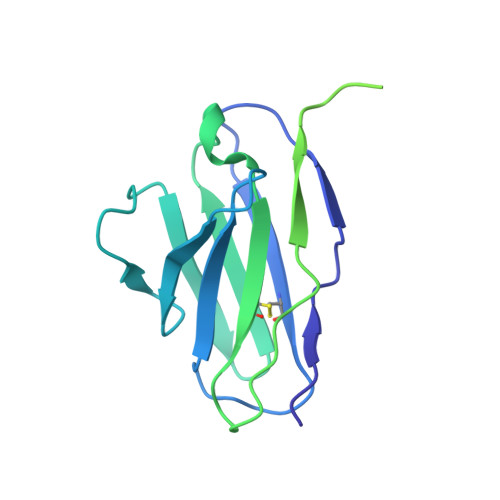An antibody that neutralizes SARS-CoV-1 and SARS-CoV-2 by binding to a conserved spike epitope outside the receptor binding motif.
Fang, Y., Sun, P., Xie, X., Du, M., Du, F., Ye, J., Kalveram, B.K., Plante, J.A., Plante, K.S., Li, B., Bai, X.C., Shi, P.Y., Chen, Z.J.(2022) Sci Immunol 7: eabp9962-eabp9962
- PubMed: 35926067
- DOI: https://doi.org/10.1126/sciimmunol.abp9962
- Primary Citation of Related Structures:
8DT3 - PubMed Abstract:
The rapid evolution of severe acute respiratory syndrome coronavirus 2 (SARS-CoV-2), such as the Omicron variants that are highly transmissible and immune evasive, underscores the need to develop therapeutic antibodies with broad neutralizing activities. Here, we used the LIBRA-seq technology, which identified SARS-CoV-2-specific B cells via DNA barcoding and subsequently single-cell sequenced BCRs, to identify an antibody, SW186, which could neutralize major SARS-CoV-2 variants of concern, including Beta, Delta, and Omicron, as well as SARS-CoV-1. The cryo-EM structure of SW186 bound to the receptor binding domain (RBD) of the viral spike protein showed that SW186 interacted with an epitope of the RBD that is not at the interface of its binding to the ACE2 receptor but is highly conserved among SARS coronaviruses. This epitope encompasses a glycosylation site (N343) of the viral spike protein. Administration of SW186 in mice after they were infected with SARS-CoV-2 Alpha, Beta, or Delta variants reduced the viral loads in the lung. These results demonstrated that SW186 neutralizes diverse SARS coronaviruses by binding to a conserved RBD epitope, which could serve as a target for further antibody development.
Organizational Affiliation:
Department of Molecular Biology, University of Texas Southwestern Medical Center, Dallas, TX 75390-9148, USA.





















